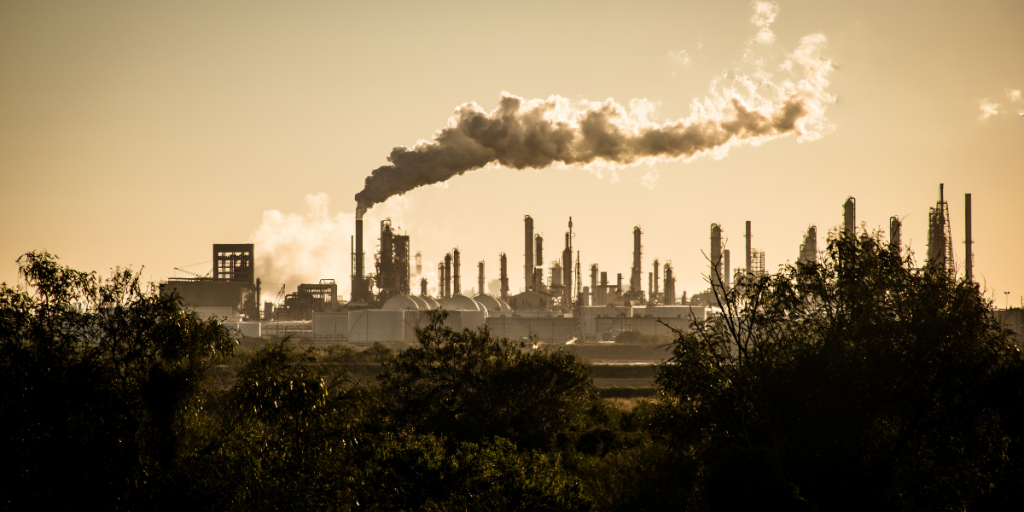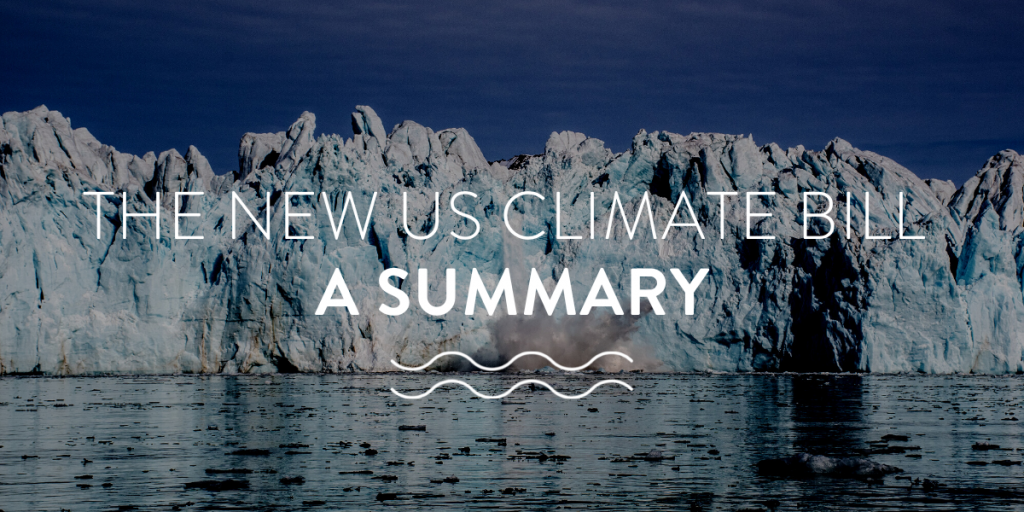You might have heard that the United States Congress has passed an impressive reconciliation package intended to ignite the clean energy transition in a serious way. But what will this bill do for our global environment? And how will this package actually lower carbon emissions and ultimately help protect our oceans?
While the focus of the historic Inflation Reduction Act is primarily on climate-positive incentives for a renewable energy transition, the bill itself authorizes 369 billion dollars of spending over 10 years to mitigate climate change. Through tax credits that incentivize wind and solar, electric vehicles, and funding for clean energy programs, natural gas and coal will ultimately be displaced. A slew of environmental spending projects and green infrastructure clauses were also included in the bill.
The Act has the potential to reduce the United States’ greenhouse gas emissions to 40% below 2005 levels by the end of this decade. This is the largest, most aggressive, and most historic action the US has ever taken for the environment!
With the war in Ukraine, plus global concerns over inflation, it seems like a miracle such a large spending bill was passed during a divisive period in Congress. The bill itself took on many forms during it’s complex and heated negotiations throughout the past year, and represents much compromise made between Republican and Democratic representatives. Yet, chaotic and extreme weather events on every continent– from heatwaves to drought to forest fires– are making it incredibly clear the time to act is now.
Does the climate bill help the ocean?
To understand how this bill helps the ocean, we have to understand how emissions cause sea acidification and warming. Ocean waters act as a natural carbon sink, soaking up about 30% of the carbon dioxide emitted into the atmosphere. Soaking up all that carbon changes the pH of the water, causing acidification. The concentration of CO2 in the atmosphere creates the warming effect. As human activity has increased our emissions, the ocean has increased its share of the burden.
The sea contains many powerful yet delicately balanced ecosystems. When seawater is impacted by acidification, creatures from the top to the bottom of the food chain are affected. Shells begin to dissolve. Fish cannot detect their predators or locate suitable habitat. Seagrass grows at a faster rate. The fragility of these food webs is damaged, and long term consequences for sea creatures and coastal communities ensue.
Not to mention that the impacts of even just a few degrees of ocean warming will be catastrophic for our Earth’s environment! Rising sea levels are submerging islands, and warmer waters are bleaching coral reefs. All of this is linked to carbon.
The US’s climate bill pledges $2.6 billion in grants to fund coastal resilience projects, $50 million to protect old-growth forests, and $250 million to save endangered species. These investments are surely better than nothing when it comes to preserving and protecting the sea. Plus, any action taken to reduce emissions is ultimately an action that will conserve underwater worlds.
It will be fascinating to follow and track the impact of these grants over the next ten years in American history; to see if their full potential is realized, and if other nations follow suit.
Global Impact
Despite this progress in the US, the global response to the bill has been lackluster. The second largest carbon emitter, China, has cut off climate negotiations with the US in response to a congressional member’s visit to Taiwan.
Other political leaders wonder why the US isn’t doing more to support vulnerable communities bearing the brunt of rich countries’ emissions. “Although the US bill provides $370bn in climate spending, those of us in the Global South are wondering why the US and other rich countries have failed to keep their own promise to collectively provide $100bn of climate finance to poor and vulnerable countries by 2020,” said Mohamed Adow, director of the Power Shift Africa think tank.
The next major international climate conference, COP27, is set to take place in Egypt this November. It remains to be seen what level of progress global leaders will be able to agree on. Our hope is this movement by the US is a positive sign that global governments are beginning to feel the weight and gravity of the climate problem.




